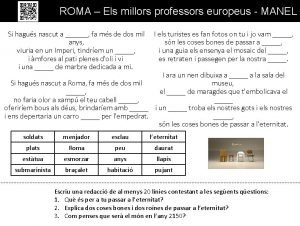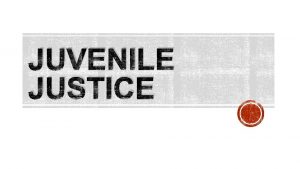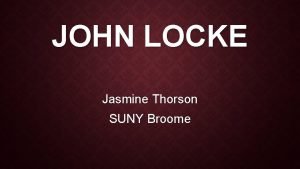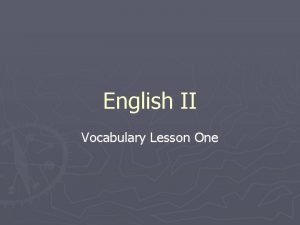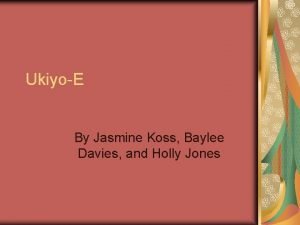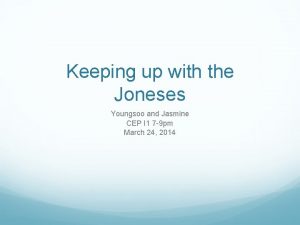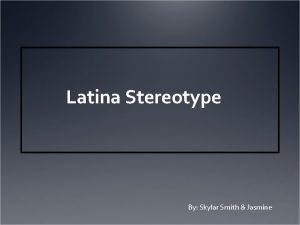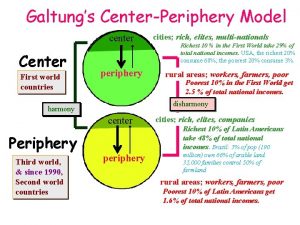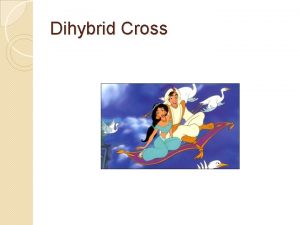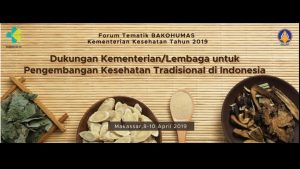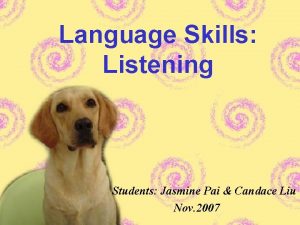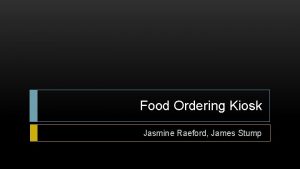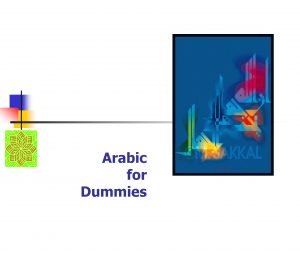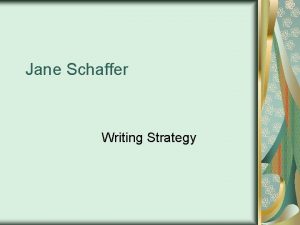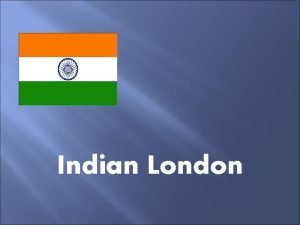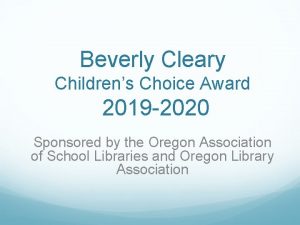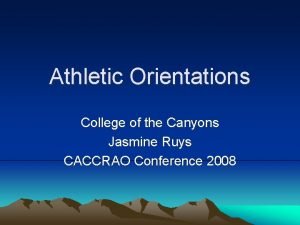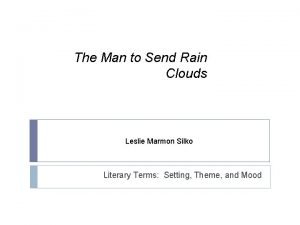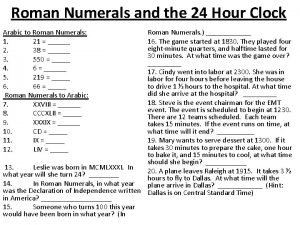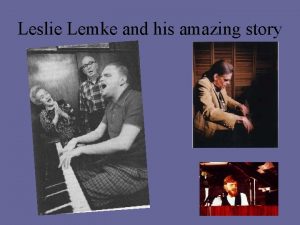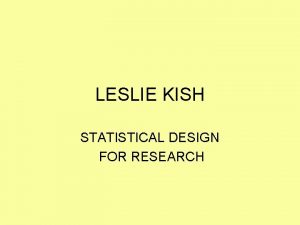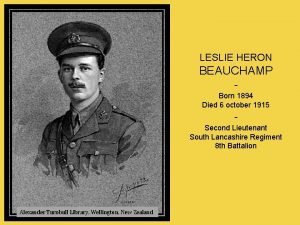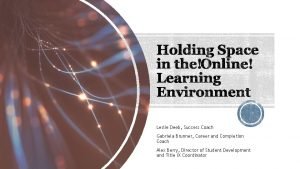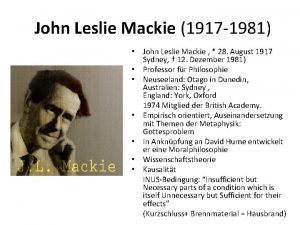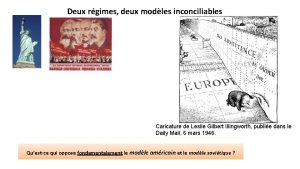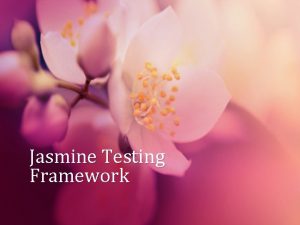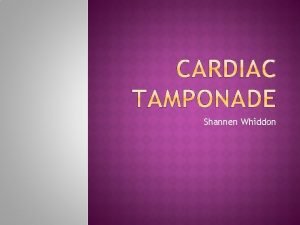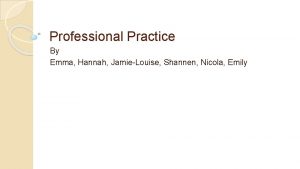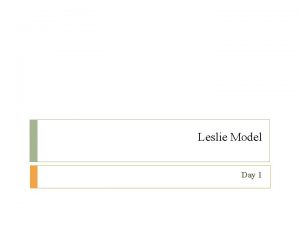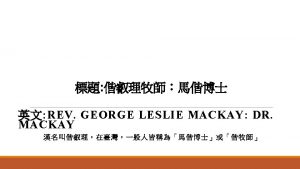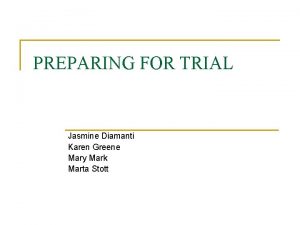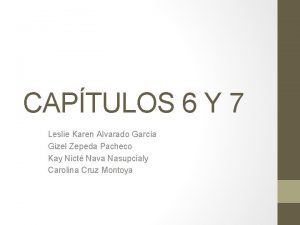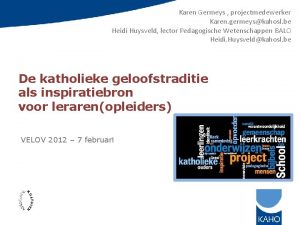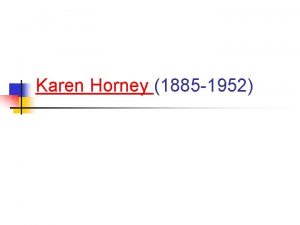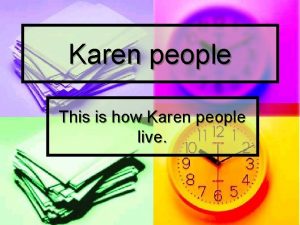Education Manel Karen Jasmine Leslie Shannen Education Manel








































- Slides: 40

Education Manel Karen Jasmine Leslie Shannen

Education Manel Karen Jasmine Leslie Shannen

First Major Point “For so long everyone has wanted to hold on to the belief that the United States is a class -free society-that anyone who works hard enough can make it to the top. No wonder it has taken so long for many citizens to recognize class-to become class conscious” (hooks 5).

“Poverty in the white mind is always primarily black” (hooks 4)

Second Major Point “Individuals who inherited wealth as children and who have never worked at a paying job often feel they must mask their class privilege” (hooks 75).

“When I was choosing a college to attend, the issue of money surfaced and had to be talked about” (hooks 25)

“Poor students would be welcome at the best institutions of higher learning only if they were willing to surrender memory, to forget the past and claim the assimilated present as the only worthwhile and meaningful reality” (hooks 37)

“Mama urged me to attend a college nearby which offered financial aid” (hooks 25)


Ivy League Schools: Brown University 10. 9% 2008 -2009 NYU 14. 8% 2008 -2009 Duke University 8. 3% 2006 -2007 Yale 8. 9% Washington University 5. 7%


School name (state) U. S. News rank & category 6 -year graduation rate (overall) 6 -year graduation rate (Pell) Underperformance Hanover College (IN) 112, National Liberal Arts Colleges 71% 30% -41 St. Louis University 92, National Universities 71% 51% -20 College of the Atlantic (ME) 90, National Liberal Arts Colleges 71% 52% -19 Eastern Mennonite University (VA) 175, National Liberal Arts Colleges 66% 48% -18 University of Cincinnati 139, National Universities 59% 41% -18 University of Minnesota—Twin Cities 68, National Universities 70% 52% -18 Auburn University (AL) 89, National Universities 66% 49% -17 Massachusetts College of Liberal Arts RNP*, National Liberal Arts Colleges 53% 36% -17 University of Kansas 106, National Universities 61% 44% -17 Clemson University (SC) 68, National Universities 80% 64% -16 Indiana University—Bloomington 83, National Universities 72% 56% -16 Muhlenberg College (PA) 70, National Liberal Arts Colleges 86% 70% -16

Analysis Crossing Class Boundaries: Thinking about race, not class. ❏ white workers were paid more than black workers for doing the same job. ❏ racial discrimination was still “the norm” ❏ working class families -men worked at coal mines/janitors -women did housecleaning/tobacco fields So how do you escape from all of this without loosing ground with your own being?

Education: ❏ plays an important role when crossing class boundaries ❏ bell hooks chose to go to a private college rather than going to s State college ❏ she was like working class girl attending the rich school Purpose: Her favorite teacher (an anti-racist liberal) told her that private colleges were for serious thinkers. ● prove to her family that she can go out into the world and be aside a group of more privileged people being misunderstood, but… “To them a good life was one where you worked hard, created a family, worshiped God, had the occasional good time, and lived day to day. ”-bell hooks Overall: ❏ maintained cautious of how hard she had to work ❏ believed she will grow economically, as she did. ❏ lastly, created the idea that one day we will all stand for economic justice!

Analysis Reproduction of Privilege: ❏ The rich afforded more material for class and could pay for more education. ❏ Poor or lack of guidance in education for the under privileged. ❏ The privileged people fail to see the importance in school. ● inheritance is a safety net.

Research Questions ❏ What is the percentage of dropouts? ❏ What social class apply more to college? ❏ What is the main social class that attend UC’s?

What is the percentage of dropouts? “The Harvard study’s assertions are supported by data collected by the Organization for Economic Co-operation and Development for its report “Education at a Glance 2010. ” Among 18 countries tracked by the OECD, the United States finished last (46 percent) for the percentage of students who completed college once they started it. That puts the United States behind Japan (89 percent), and former Soviet-bloc states such as Slovakia (63 percent) and Poland (61 percent)”(Waldon).

What social class apply more to college? “A recent Brooking study found that just 8% of low-income students applied to a “reach” school and just 34% of highachieving students in this group attended one of the country’s 238 most selective universities. (The study defined low income as being in the bottom fourth, income-wise, of families with a senior in high school. For 2008, the year studied, low-income meant a family income below $41, 472. )”(Mc. Grath).

What is the main social class that attend Uc’s? “Over the latter half of the 20 th century there was little change in the proportion of university students from lower social classes” (Baldon). According to Paul Baldon their higher education participation increased. Many low income students were discouraged to apply to Uc, due to the affordability. Therefore, more higher income student attend Universities.

Discussion Questions ❏ How many of you were motivated a friend or relative to attend college? ❏ How many of you were put into special classes in high school to be prepared for college? ❏ Who knew the steps to take to be a freshman in college? ❏ What are some college that you applied to? ❏ Did any of you apply to any competitive school (e. g Yale, Harvard, Brown, Princeton, Stanford, etc)?

Works Cited Waldon, Travis. "Study: Nearly Half Of America’s College Students Drop Out Before Receiving A Degree. "Think Progress. N. p. , 28 march 2012. Web. 26 Mar. 2014. Mc. Grath, Maggie. "The Challenge Of Being Poor At America's Richest Colleges. " Forbes. 27 Nov 2013: n. page. Web. 26 Mar. 2014. Bolton, Paul. "Higher Education and Social Class. "Library House of Commons. (2010): 1 -12. Web. 26 Mar. 2014. "Where The 1% Send Their Kids to College. " RSS. N. p. , n. d. Web. 26 Mar. 2014. <http: //collegestats. org/articles/2012/07/where-the-1 -send-their-kids-to-college/>. "CHART: How Income Inequality Contributes To A Growing Education Gap That Is Jeopardizing Our Middle Class. " Think. Progress RSS. N. p. , n. d. Web. 26 Mar. 2014. <http: //thinkprogress. org/economy/2012/05/17/486244/chart-income-inequalityeducation/>.

First Major Point “For so long everyone has wanted to hold on to the belief that the United States is a class -free society-that anyone who works hard enough can make it to the top. No wonder it has taken so long for many citizens to recognize class-to become class conscious” (hooks 5).

“Poverty in the white mind is always primarily black” (hooks 4)

Second Major Point “Individuals who inherited wealth as children and who have never worked at a paying job often feel they must mask their class privilege” (hooks 75).

“When I was choosing a college to attend, the issue of money surfaced and had to be talked about” (hooks 25)

“Poor students would be welcome at the best institutions of higher learning only if they were willing to surrender memory, to forget the past and claim the assimilated present as the only worthwhile and meaningful reality” (hooks 37)

“Mama urged me to attend a college nearby which offered financial aid” (hooks 25)


Ivy League Schools: Brown University 10. 9% 2008 -2009 NYU 14. 8% 2008 -2009 Duke University 8. 3% 2006 -2007 Yale 8. 9% Washington University 5. 7%


School name (state) U. S. News rank & category 6 -year graduation rate (overall) 6 -year graduation rate (Pell) Underperformance Hanover College (IN) 112, National Liberal Arts Colleges 71% 30% -41 St. Louis University 92, National Universities 71% 51% -20 College of the Atlantic (ME) 90, National Liberal Arts Colleges 71% 52% -19 Eastern Mennonite University (VA) 175, National Liberal Arts Colleges 66% 48% -18 University of Cincinnati 139, National Universities 59% 41% -18 University of Minnesota—Twin Cities 68, National Universities 70% 52% -18 Auburn University (AL) 89, National Universities 66% 49% -17 Massachusetts College of Liberal Arts RNP*, National Liberal Arts Colleges 53% 36% -17 University of Kansas 106, National Universities 61% 44% -17 Clemson University (SC) 68, National Universities 80% 64% -16 Indiana University—Bloomington 83, National Universities 72% 56% -16 Muhlenberg College (PA) 70, National Liberal Arts Colleges 86% 70% -16

Analysis Crossing Class Boundaries: Thinking about race, not class. ❏ white workers were paid more than black workers for doing the same job. ❏ racial discrimination was still “the norm” ❏ working class families -men worked at coal mines/janitors -women did housecleaning/tobacco fields So how do you escape from all of this without loosing ground with your own being?

Education: ❏ plays an important role when crossing class boundaries ❏ bell hooks chose to go to a private college rather than going to s State college ❏ she was like working class girl attending the rich school Purpose: Her favorite teacher (an anti-racist liberal) told her that private colleges were for serious thinkers. ● prove to her family that she can go out into the world and be aside a group of more privileged people being misunderstood, but… “To them a good life was one where you worked hard, created a family, worshiped God, had the occasional good time, and lived day to day. ”-bell hooks Overall: ❏ maintained cautious of how hard she had to work ❏ believed she will grow economically, as she did. ❏ lastly, created the idea that one day we will all stand for economic justice!

Analysis Reproduction of Privilege: ❏ The rich afforded more material for class and could pay for more education. ❏ Poor or lack of guidance in education for the under privileged. ❏ The privileged people fail to see the importance in school. ● inheritance is a safety net.

Research Questions ❏ What is the percentage of dropouts? ❏ What social class apply more to college? ❏ What is the main social class that attend UC’s?

What is the percentage of dropouts? “The Harvard study’s assertions are supported by data collected by the Organization for Economic Co-operation and Development for its report “Education at a Glance 2010. ” Among 18 countries tracked by the OECD, the United States finished last (46 percent) for the percentage of students who completed college once they started it. That puts the United States behind Japan (89 percent), and former Soviet-bloc states such as Slovakia (63 percent) and Poland (61 percent)”(Waldon).

What social class apply more to college? “A recent Brooking study found that just 8% of low-income students applied to a “reach” school and just 34% of highachieving students in this group attended one of the country’s 238 most selective universities. (The study defined low income as being in the bottom fourth, income-wise, of families with a senior in high school. For 2008, the year studied, low-income meant a family income below $41, 472. )”(Mc. Grath).

What is the main social class that attend Uc’s? “Over the latter half of the 20 th century there was little change in the proportion of university students from lower social classes” (Baldon). According to Paul Baldon their higher education participation increased. Many low income students were discouraged to apply to Uc, due to the affordability. Therefore, more higher income student attend Universities.

Discussion Questions ❏ How many of you were motivated a friend or relative to attend college? ❏ How many of you were put into special classes in high school to be prepared for college? ❏ Who knew the steps to take to be a freshman in college? ❏ What are some college that you applied to? ❏ Did any of you apply to any competitive school (e. g Yale, Harvard, Brown, Princeton, Stanford, etc)?

Works Cited Waldon, Travis. "Study: Nearly Half Of America’s College Students Drop Out Before Receiving A Degree. "Think Progress. N. p. , 28 march 2012. Web. 26 Mar. 2014. Mc. Grath, Maggie. "The Challenge Of Being Poor At America's Richest Colleges. " Forbes. 27 Nov 2013: n. page. Web. 26 Mar. 2014. Bolton, Paul. "Higher Education and Social Class. "Library House of Commons. (2010): 1 -12. Web. 26 Mar. 2014. "Where The 1% Send Their Kids to College. " RSS. N. p. , n. d. Web. 26 Mar. 2014. <http: //collegestats. org/articles/2012/07/where-the-1 -send-their-kids-to-college/>. "CHART: How Income Inequality Contributes To A Growing Education Gap That Is Jeopardizing Our Middle Class. " Think. Progress RSS. N. p. , n. d. Web. 26 Mar. 2014. <http: //thinkprogress. org/economy/2012/05/17/486244/chart-income-inequalityeducation/>.
 Manel els millors professors europeus
Manel els millors professors europeus Dinda anistya jasmine
Dinda anistya jasmine Radio haanji contact number
Radio haanji contact number Jasmine richardsom
Jasmine richardsom Agnes keene
Agnes keene Jasmine had thought that her irresponsible days of
Jasmine had thought that her irresponsible days of Jasmine koss
Jasmine koss Serrano v priest
Serrano v priest Dr trang ha
Dr trang ha Keeping up with the joneses origin
Keeping up with the joneses origin Confucianism facts
Confucianism facts Jasmine kullar
Jasmine kullar Jasmine latina
Jasmine latina Hegar's sign بالعربي
Hegar's sign بالعربي Jasmine hyman
Jasmine hyman Jasmine model center
Jasmine model center Jasmine ahmed
Jasmine ahmed Aladdin and jasmine
Aladdin and jasmine Hotel carlo makasar
Hotel carlo makasar Jasmine pai
Jasmine pai Njit gds
Njit gds Morphology of inflorescence
Morphology of inflorescence Arabic for dummies
Arabic for dummies Jasmine amin chelsea
Jasmine amin chelsea Jasmine
Jasmine Lion king sexism
Lion king sexism Jasmine and aladdin
Jasmine and aladdin Istituto comprensivo mangone grimaldi
Istituto comprensivo mangone grimaldi Jasmine simhalan
Jasmine simhalan Jasmine toguchi mochi queen vocab
Jasmine toguchi mochi queen vocab Jasmine ruys
Jasmine ruys Leslie lemke
Leslie lemke The man to send rain clouds
The man to send rain clouds Leslie was born in mcmlxxxi. in what year will she turn 24?
Leslie was born in mcmlxxxi. in what year will she turn 24? Leslie lemke
Leslie lemke Leslie kish
Leslie kish Leslie heron
Leslie heron Gabriela brunner
Gabriela brunner Leslie kaelbling
Leslie kaelbling John leslie mackie
John leslie mackie Leslie gilbert illingworth
Leslie gilbert illingworth
